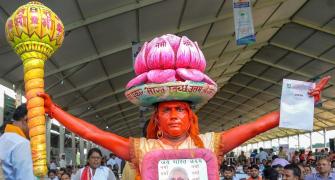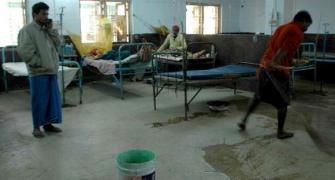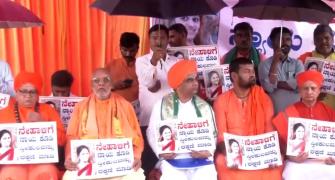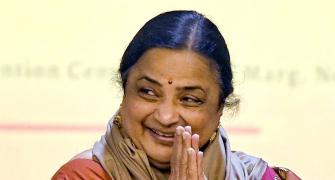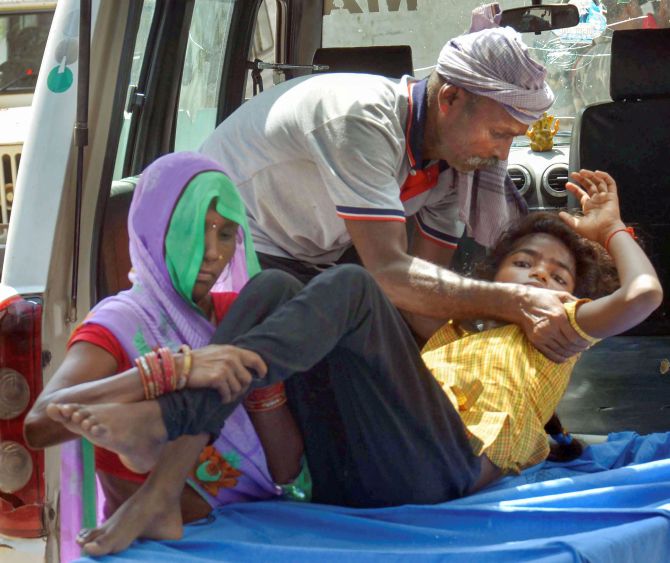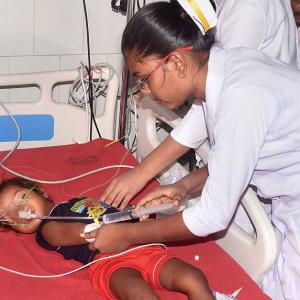'Political elites need to feel that these are our children dying, that this is a crisis for us, a tragedy for our community, we must take immediate action to save the lives of our people.'
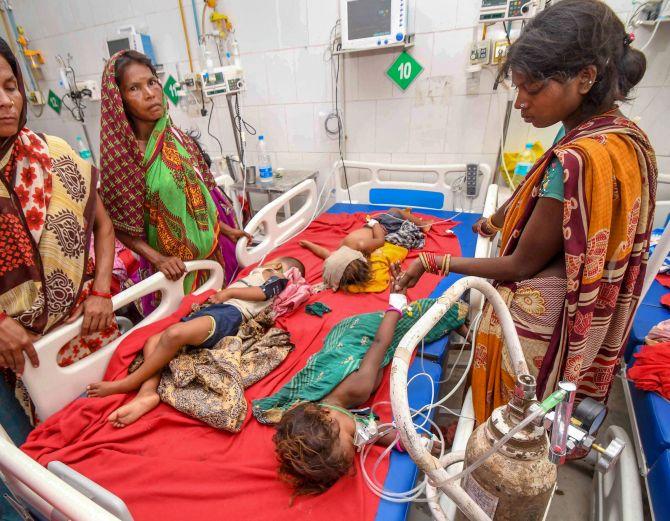
173 children have died in Bihar due to encephalitis. All of the children were poor. A group of doctors conducted an independent inquiry into the deaths of children in Bihar's Muzaffarpur district, blamed administrative failure and the State's apathy towards people for the tragedy.
Dr Prerna Singh, Mahatma Gandhi assistant professor of political science and international studies at Brown University in the US, and previously assistant professor at Harvard University, has written an award-winning book How Solidarity Works for Welfare: Subnationalism and Social Development in India, which looks at the causes for the dramatic divergences in social welfare across states in India.
"At just over 1% of its GDP, India spends less on the health of its citizens than most low-income countries. Neighbouring Nepal has lower levels of economic development than India, but has devoted far greater outlays on health," Professor Singh, an alumnus of Princeton, Cambridge, UK and Delhi's St Stephen's College, below, tells Rediff.com's Archana Masih in an e-mail interview.
Why has the Indian State failed to provide a functioning health care infrastructure to its most vulnerable constituents who need it most?
The health of its citizens is not a priority for the Indian State. This is brought out starkly by its public health expenditure data, which is one of the lowest in the world.
A prominent explanation for why countries do not prioritise the social sector is that they are too poor to do so. They do not have the economic resources to invest in health, and other essential social services.
This is clearly not the case for India.
At just over 1% of its GDP, India spends less on the health of its citizens than most low-income countries.
Consequently, India has much lower health outcomes than many countries with similar or lower levels of economic development.
As an example, neighbouring Nepal has lower levels of economic development than India, but has devoted far greater outlays on health.
As a result, residents of Nepal have experienced much better health outcomes than India.
Why do political parties not give healthcare its due?
There are many explanations that have been put forward to explain the Indian State's neglect of the social sector including patronage politics and ethnic voting.
Political parties often gain votes based on the distribution of patronage and clientelistic ties, rather than the promise and delivery of social programmes.
Electoral support is sought and gained through the provision of targeted goods to 'clients' rather than on the provision of universal, social services such as health care.
This patronage politics intersects with ethnic identities.
In many instances, people vote in blocs for candidates from their caste or religious background.
As the adage goes, people don't cast their vote, they vote their caste.
What will it take for public healthcare to come to the centre of business for India's lawmakers?
There are certain factors that have been shown to generate greater incentives for politicians to emphasise the social sector.
For example, if elections are more competitive; if political parties rely on a diversity of ethnic groups, particularly ethnic minorities; if there is a strong network of civil society groups.

In my book, How Solidarity Works for Welfare: Subnationalism and Social Development in India, I try to understand the causes for the dramatic divergences in social welfare across states in India.
States in India, which have primary responsibility over social sectors such as health, have been bound by the same electoral, legal and financial institutions. Yet they have remained worlds apart in social development.
While certain states have attained levels of social development, conceptualised in terms of the education and health of the population, approaching those enjoyed by middle-income, industrialised countries, other states have fared worse than countries in sub-Saharan Africa.
Some states have a better record of providing medical care -- like Kerala handled the Nipah outbreak -- is it because the citizenry is literate and more empowered to make the state deliver?
In the 1950s, residents of Bihar (which has a larger population than France) were less than half as likely to be literate as people in Himachal Pradesh.
In the 1970s, women in Orissa (which has a larger population than Argentina) were expected to live, on average, over twelve years less than women in Punjab.
In the 1990s, children born in Madhya Pradesh (which has a population just a little lower than Turkey) were five times less likely to survive through infancy than those born in the state of Goa.
Even today, women in Maharashtra (demographically equivalent to Mexico) are four times less likely to die during childbirth than their counterparts in Assam.
What explains this variation?
The answer to this puzzle, my book suggests, lies in understanding how the shared solidarity that emerges from a collective identification, can generate a politics of the common good.
What kind of a systematic overhaul is needed to make social welfare more accountable?
I adopt a more historical perspective showing that a sense of shared solidarity can be an important driver for political elites to invest in the social sector.
Experiments in social psychology have consistently and robustly shown that when people feel a sense of identification with their group, their attitudes and behaviour towards that group becomes more positive.
Group identification brings about a move from a narrow 'me' to a broader 'we' identity.
A sense of 'we-ness' promotes a perception of shared interests and goals, and a prioritisation of collective welfare.
Bonds of oneness promote a sense of mutual obligations.
Elites bound by such solidaristic ties are more likely to push for progressive social policies that further the welfare of the subnational community as a whole.
I show through historical, case-study based and statistical analysis that states in India that have been characterised by a stronger sense of sub-national solidarity, such as Kerala and Tamil Nadu, have been more committed to the social sector as compared to a state such as Uttar Pradesh, which has had a much more fragmented sub-national identity.
An argument such as this points to the more distal but significant factors that influence governmental commitment to health and education.
Tragedies such as the encephalitis outbreak are reflective of serious systemic deficiencies in our neglected, underfunded health sector.
A sense of 'we-ness', of collective identification, of shared fate -- over and above caste or religious or class identities -- can be a very important factor in motivating political elites to commit to the social sector.
Political elites need to feel that these are our children dying, that this is a crisis for us, a tragedy for our community, we must take immediate action to save the lives of our people.


